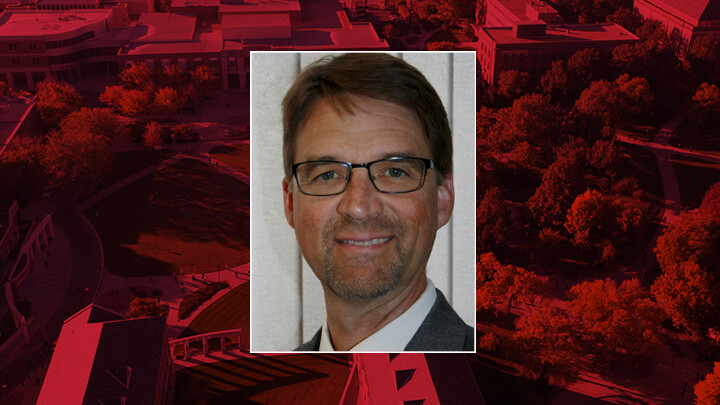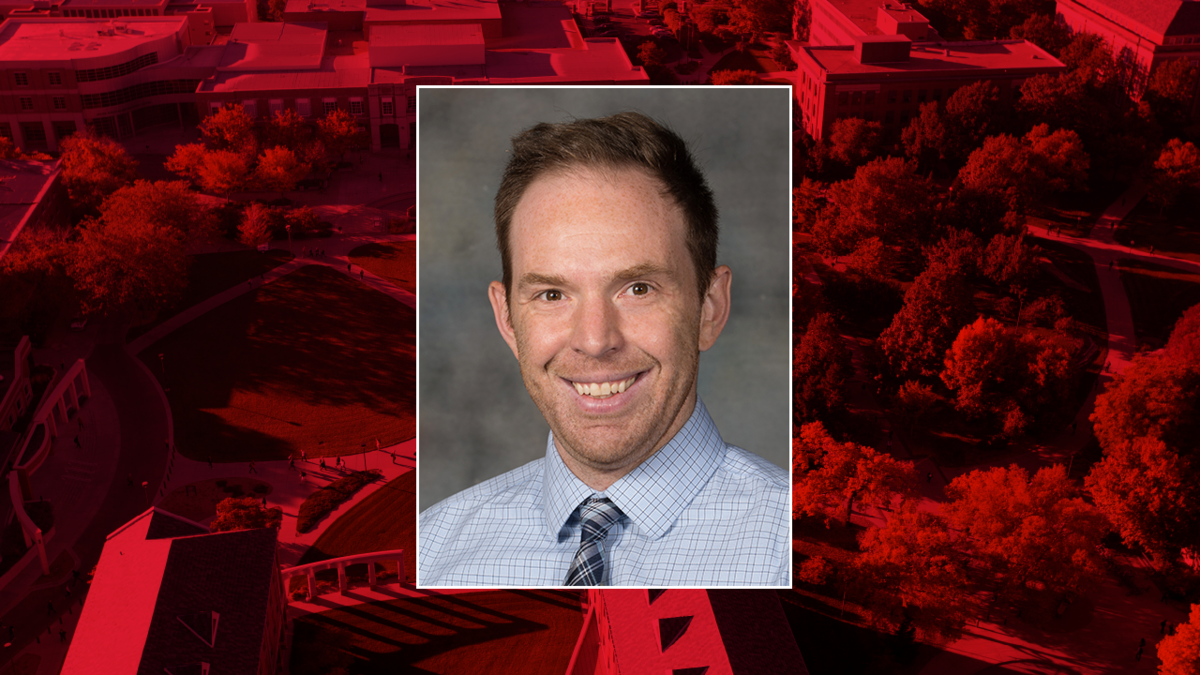
A retirement reception for Thomas Franti, associate professor and extension specialist in the Department of Biological Systems Engineering, is 3 to 5 p.m. Dec. 13 in the East Nebraska Union, Great Plains Room B/C. A parking attendant will be present at the 37th and Fair Street lot to direct participants to the appropriate parking location.
Franti earned a Bachelor of Science degree from the University of Wisconsin-Madison, a Master of Science degree from Iowa State University, and doctoral degree from Purdue University, all in agricultural engineering. He is a registered professional engineer in Wisconsin, where he worked five years for STS Consultants before beginning his career with the University of Nebraska–Lincoln. Franti joined the Nebraska faculty in August 1993, as a surface water management specialist with a research and Nebraska Extension appointment.
Franti conducted research and extension education programs related to protecting surface water quality. He has written guides related to riparian buffer strips to protect streams from agricultural runoff, rain gardens for urban homeowners, and use of compost for erosion control on steep slope construction sites. He had extensive experience leading and participating in state and regional extension and research projects. In Nebraska he led the Platte River Watershed Program from 1995-2003, including conducting the Platte River Basin Ecosystem Symposium. He led or collaborated on statewide programs in reducing atrazine runoff, implementing conservation buffers, implementing the USDA NRCS Conservation Security Program, and promoting green stormwater infrastructure across the state with a multidisciplinary extension team.
He was involved in several regional projects with Kansas State University and co-led and worked on the four-state Heartland Regional Water Coordination Initiative. He currently leads a four-state outreach and research grant related to reducing ephemeral gully erosion in the region. Franti has led the development of the Bachelor of Science in Engineering undergraduate focus in ecological engineering. He taught the first course in the department related to ecological engineering in 2003 and developed the current course, “Introduction to Ecological Engineering,” as an international, collaborative course with McGill University in Montreal, Canada. He also teaches the long-standing course “Non-point Source Pollution Control Engineering.” Franti has served on the executive committee of the American Ecological Engineering Society and now serves on their body of knowledge committee to aid in supporting accreditation for ecological engineering undergraduate program in the U.S.
Franti has been active in the university’s Center for Great Plains Studies, serving on the Board of Governors; editing a book of poetry published by the center; and serving on numerous ad hoc and standing committees, including the Great Plains Book Prize competition, search committee for the museum curator, and the curriculum committee. Franti also served on the university’s Faculty Senate and Faculty Senate Executive Committee.
During his retirement, Franti and his wife, Marti, are looking forward to spending time with their two sons and families, including visiting two grandsons in South Dakota and visiting the Colorado mountains for snow skiing and fly fishing. They also plan to spend time in the upper peninsula of Michigan at a family farm that includes 80 acres of hay fields and woods.







